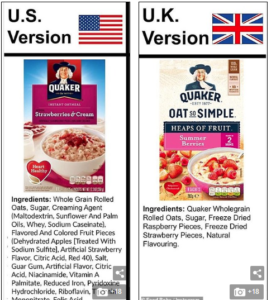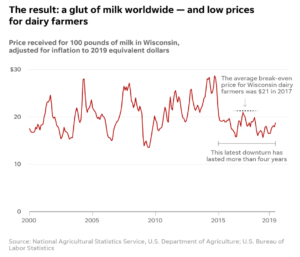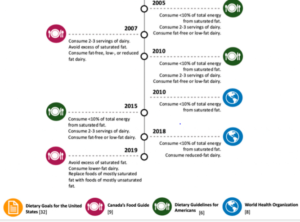Study of the week: Mushrooms, prostate cancer, Japan—Gastro-patriotism!
A reader, Jeff Nelson (whose interview with me is online here), sent me a link to this Japanese study that identified a link between eating mushrooms and prevention of prostate cancer.
The study: Mushroom consumption and incident risk of prostate cancer in Japan: A pooled analysis of the Miyagi Cohort Study and the Ohsaki Cohort Study. Shu Zhang, et al. International Journal of Cancer. First published: 04 September 2019.
Conclusion: “The present study showed an inverse relationship between mushroom consumption and incident prostate cancer among middle‐aged and elderly Japanese men, suggesting that habitual mushroom intake might help to prevent prostate cancer.”
Funding: “Our study was supported by the NARO Bio‐oriented Technology Research Advancement Institution.”
I looked up NARO:
The National Agriculture and Food Research Organization or NARO is the core institute in Japan for conducting research and development on agriculture and food. Our overall mission is to contribute to the development of society through innovations in agriculture and food, by promoting pioneering and fundamental R&D. We conduct technological development to make agriculture a competitive and attractive industry, and contribute to increasing the nation’s food self-sufficiency rate.
Jeff’s question: “Is this considered commercial research? Mushrooms’ magical impact of preventing cancer?”
My response: “Gastro-patriotism“
I would classify this one as ideologically driven more than commercially driven. Mushrooms are part of traditional Japanese diets and this institute promotes commercialization of Japanese agricultural products.
The result is far-fetched enough (mushrooms prevent prostate cancer, really?) to be suspicious, but this looks more like gastro-patriotism to me than the result of mushroom industry lobbying–if such exists, it was not disclosed.
Gastro-patriotism is a term I just this minute coined.* It describes the promotion of nationalism and civic pride through a country’s cuisine. Examples leap to mind with French cuisine leading the way and anything having to do with terroir. The Greek government’s promotion of olive oil is another example.
* Addition October 29
A reader, Polly Adema, reminds me that the term is hardly original. There is, she says:
an established concept and practice of gastronationalism. It is a recognized variation of gastrodiplomacy, one getting increasing attention within various academic circles…Lots of articles will come up if you search gastronationalism in google scholar or your search engine of choice. The term is from and grows out of Michaela DeSoucey’s 2016 book, Contested Tastes: Foie Gras and the Politics of Food. Here is a link to an earlier DeSoucey piece: https://journals.sagepub.com/doi/full/10.1177/0003122410372226#_i11
Oops. Apologies to Michaela DeSoucey, for not citing her excellent book, which I had read, blurbed, and posted as weekend reading, but did not think of in this context.







